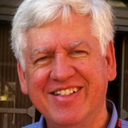#15: A Tale of Two Memorial Days
My wife and I enjoyed a fun Memorial Day picnic in New Jersey with our children and grandson. But on the flight home last night from EWR to TLV, I thought about that combination of words — “fun Memorial Day” — and about a cultural contrast, after 36 years here, between my native and adopted lands.
America is a vast country with 330 million people, protected by giant oceans, friendly (yes) borders, and a mighty (since WWII) army. That’s one reason that 9/11 shocked everyone: intense, murderous destruction—hatred as much for successes as for failures.
Israel, on the other hand, is home to just 9 million people in the same area as New Jersey, vulnerable in an unforgiving neighborhood, and there are people who are actively committed to killing us all! Power may be required to survive but doesn’t win us any popularity awards. As Golda Meir once said, “ Better negative press than positive eulogies.” My Dad, a concentration camp survivor, put it differently, “When somebody threatens your life, just believe him.”
The U.S. has a tiny fraction (0.5%) of its 350 million population in uniform. Israel has 1.8% of its 9 million citizens on active duty right now, not counting 5.2% on reserve duty, and most of the rest are veterans. That’s why Israel has no Veterans Day. Like your mother used to say, “Every day is Children’s Day.”
But the real difference between the two countries lies in a phrase from the Passover Haggadah: “In every generation they try to destroy us.” American Jews enjoy the luxury of questioning that phrase in the disturbing light of recent Jew-hatred; Israelis just nod. In this little country, everyone seems to know each other and has a family or friend touched by that most permanent of sadnesses.
There’s one more contrast: timing. The U.S. has Memorial Day at the end of May, Independence Day on July 4, and Veterans (“Armistice”) Day on November 11. But let’s face it, unless you’re part of the tiny percentage experiencing that personal blow, you might pay respect to the armed forces, but it’s a still a long weekend for picnics and discount sales. Maybe we all hope to get to that place.
In Israel the juxtaposition is severe by intent. Two weeks after Passover comes Holocaust Memorial Day, a reminder of the direct link between powerlessness and mass murder. A week later comes Memorial Day to remind us of the wrenching sacrifices that (help) guarantee national freedom. And the next day, at sunset, to be precise, it all switches in the blink of an eye from mourning to the celebration of Yom HaAtzmaut, Israeli Independence Day. The three are intricately connected, for better or worse.
There are sirens on both Israeli Memorial Days and people stand at attention wherever they are. Even drivers on the highways stop and get out of their cars to observe a minute of silence and remember. Because, however fractured our politics, we all grasp the true stakes as one.
Nowhere have I seen this phenomenon explained more movingly on film that this short clip from Simon Schama’s brilliant “ The Story of the Jews “ (Episode 6). (Click on video below.)
So, you see, there are advantages to both big and little countries. Let’s dream of a happier future when Memorial Days are distant memories of the very personal sacrifices for independence.
Originally published at http://bobr.com on May 28, 2019.
